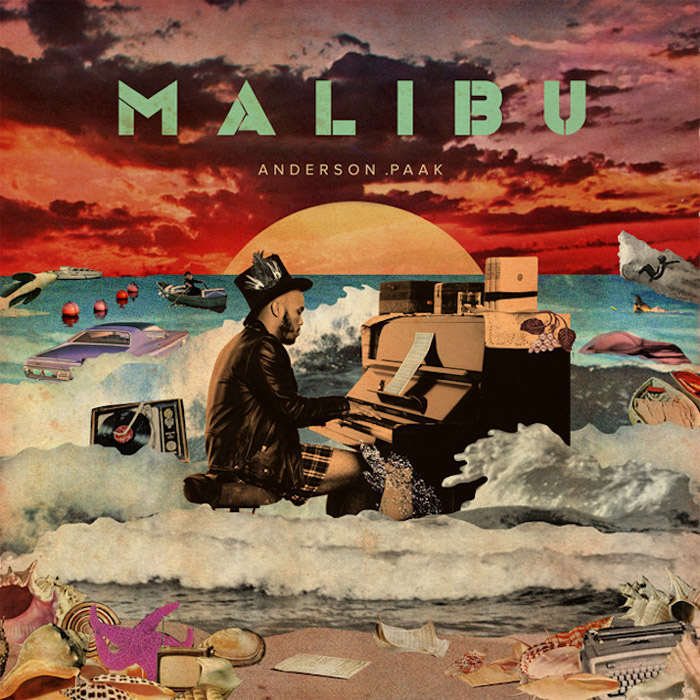Anderson .Paak represents a new wave of artists that don’t fit neatly into one genre. Rather, he stands in the hazy divide between them. Featured on Dr Dre’s Compton, The Game’s The Documentary 2.5, and Goldlink’s And After that, We Didn’t Talk, .Paak seemed to be everywhere in 2015, primed to explode. On Malibu, his second full length album after 2014’s Venice, .Paak blends rap, jazz, and gospel into a lucid reflection of the struggles of coming to terms with his own confused identity as a half-Korean, half-black Section 8 baby from Oxnard, California.
Humble honesty tempers his style—a triple threat of rapping, singing, and producing—creating an album whose heights sing higher than most. Album opener, “The Bird,” immerses listeners in a soundscape produced solely by .Paak.
As he croons, “We came up in a lonely castle / My papa was behind them bars / We never had to want for nothing / Said all we ever need is love,” cool jazz guitar riffs, slurred trumpet musings, and delicate piano flutters blend to introduce a sincere personal reflection.
The highs that songs like “The Bird” hit, however, set a standard hard to match. .Paak blends in disco tunes “Am I Wrong (feat. Schoolboy Q)” and “Room in Here (feat. The Game and Sonyae)” to answer the despairing tone created by the fatalist musings of “The Bird,” the absolution-seeking “The Waters (feat. BJ the Chicago Kid),” and plaintive “The Season / Carry Me.” This lush balance attests to his evident maturity as a holistic artist who oversees his music’s every facet.
Yet, as far as his diligence goes, it overreaches on tracks that could do with gritty muddiness. Though “Your Prime” stands out for the buoyant DJ Khalil beat and .Paak’s smooth song-rap delivery, the cleanness of the production and unsustainable lyrical dynamism prevent it from reaching its full potential. A signature .Paak “Oh hell, naw” keys in a luxurious verse that begins “I had to get back for the candy, uh / I flew for an hour then landed, oh.” Unable to maintain this grit, the song falls into a lascivious bridge of “Come back to bed / come back to bed with me,” and the production fails to add interest.
Regardless, .Paak produces an emotional complex that artfully merges eclectic styles and a message of self-belief, culminating with “The Dreamer”: “Mama always kept the cable on / I’m a product of the tube and the free lunch / Living room, watching old reruns.” As .Paak reminds himself on “The Season / Carry Me,” “Don’t forget that dot, nigga you paid for it,” he reminds listeners of what it means and what it pays to craft a distinct identity in spite of everything that works against people.









